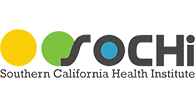Are you wondering if college is worth your time and money? Let’s dive into the pros and cons of higher education to help you make an informed decision. Choosing whether to proceed with higher education is a critical decision that can significantly influence one’s future. The debate about the benefits of college has been ongoing, and the rising cost of tuition fees has resulted in more people questioning whether it’s worth the investment.
Therefore, it’s vital to analyze the advantages and disadvantages of attending college before deciding. This blog will provide an informative and comprehensive way to answer the question – Is College Worth The Time And Money?
Discover Why Is College Worth The Time And Money?
Is investing in a college education really worth it? Find out the benefits and potential drawbacks before making this important decision for your future.
1. Employment Opportunities:
One of the most significant benefits of attending college is that a degree can increase employment opportunities. According to a study by the Bureau of Labor Statistics, those with a bachelor’s degree earn approximately $900 weekly compared to $712 weekly for someone with a high school diploma only. Therefore, attending college allows one to earn more money, have better job security, and have job satisfaction.
2. Personal Development:
The college provides an excellent platform for personal development. You get exposed to various curriculums and activities to develop soft skills like teamwork, communication, and time management. These skills are vital outside of college and can be useful in the workforce and personal relationships.
3. Networking:
Attending college provides an excellent opportunity to network with students, professors, and alums. Many colleges hold various career fairs and alums events, which can help build useful connections in the workforce. Additionally, a network can provide job referrals or mentorship opportunities in the field of interest.
4. Financial Burden:
On the downside, college costs continue to rise, creating a financial burden for students and their families. The burden of tuition debt can continue for many years after graduation, hindering career and life goals. Therefore, it’s essential to calculate the cost of the degree before investing time and money in college programs and researching financial aid options.
5. Academic Pressure:
Attending college can result in immense academic pressure, with expectations to perform well in coursework and extracurricular activities. Students can feel overwhelmed, leading to mental health issues such as stress and anxiety. However, most colleges offer various mental health resources, including counseling and support groups.
What is Traditional College?
Traditional colleges offer a variety of degree programs that cover a broad range of subjects. Although having a degree in a general field can open up many job opportunities, it can also be a double-edged sword. For instance, if you pursue a degree in communication studies, you’ll have a general understanding of the subject matter, but you may need more job-specific skills employers require.
To address this, you’ll need to focus your education on a particular area of communication. With the right internships and job experience, you can work in various fields, including social media, journalism, public relations, or human resources. However, more than having a degree alone is needed to secure a promising career.
What is Trade School?
Trade or vocational schools focus on providing education in specific trades. Unlike traditional colleges or universities, these schools offer targeted training to help you start your career in a particular field, such as medical assisting, physical therapy, personal fitness training, phlebotomy, and massage therapy. By attending a vocational school, you can gain practical, hands-on experience that will equip you with the skills and knowledge necessary for success in your chosen profession.
The programs offered by vocational schools are designed to provide students with the education they need to pursue rewarding careers without accumulating significant amounts of debt. Unlike traditional higher education programs, vocational schools offer laser-focused training emphasizing practical skills and hands-on experience.
How To Get Certified?
The first thing to do is research what you’d like to do. Make sure the school is accredited and good with research. Find out the cost and speak to financial aid. Talk to admissions advisors about student experience, hands-on experience, and graduate placement. Once you’ve found the appropriate school of your choice, you can start your path to saving time and money.
Conclusion:
In conclusion, the worth of college depends on personal goals and motives. While college provides numerous benefits like increased employment opportunities, networking, and personal development, disadvantages include financial burdens and academic pressure.
Prospective students should conduct research, analyze their future career goals, and review personal finances before making decisions. College can provide valuable experiences, but it’s essential to weigh in all factors before deciding its worth.




